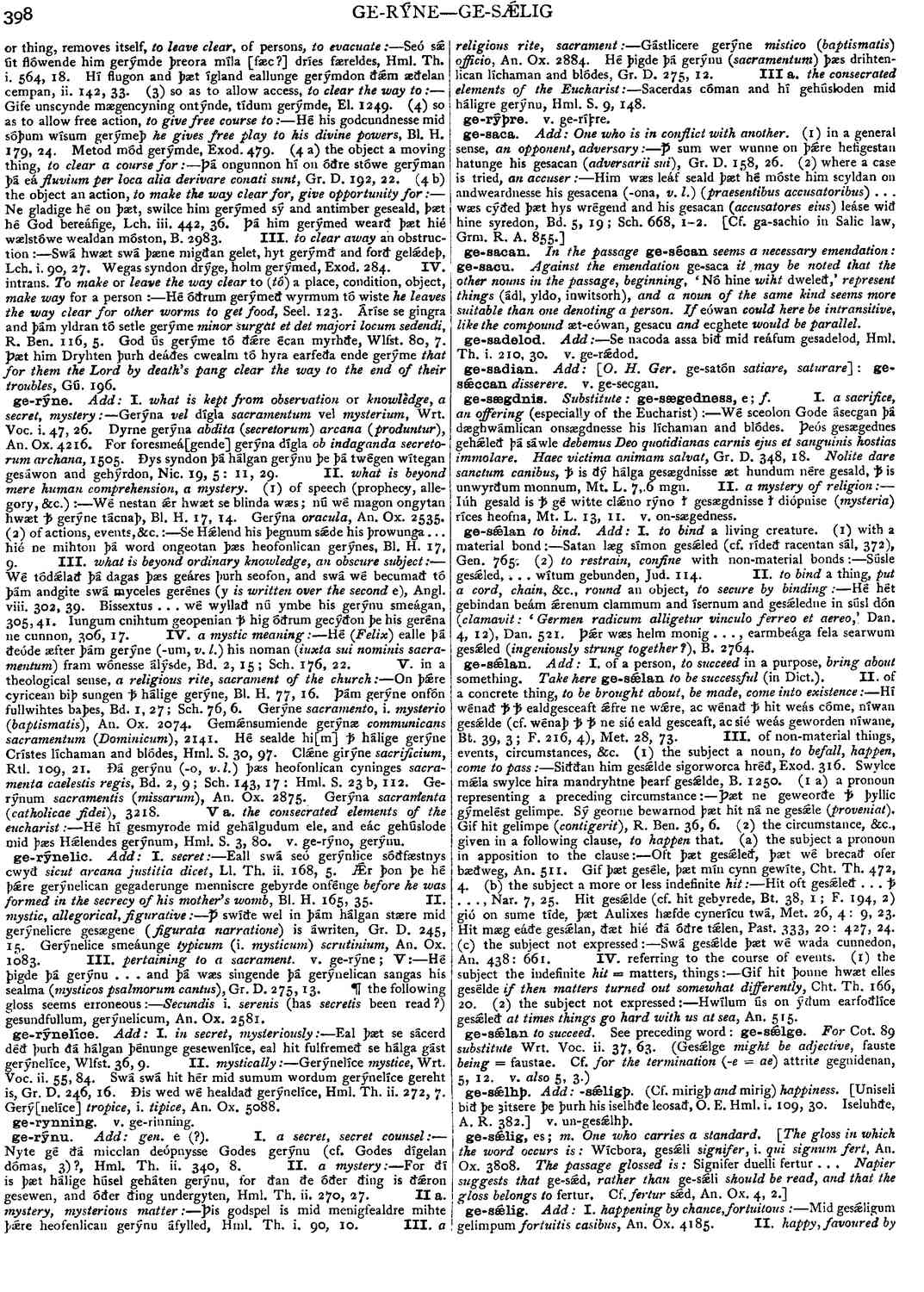ge-sǽlan
-
Hi wénað ꝥ ꝥ ealdgesceaft ǽfre ne wǽre, ac wénað ꝥ hit weás cóme, níwan gesǽlde (cf. wénaþ ꝥ ꝥ ne sié eald gesceaft, ac sié weás geworden níwane,
- Bt. 39, 3 ; F. 216, 4), Met. 28, 73.
-
Siððan him gesǽlde sigorworca hréð,
- Exod. 316.
-
Swylce mǽla swylce hira mandryhtne þearf gesǽlde, B. 1250. (l a) a pronoun representing a preceding circumstance :-- Þæt ne geweorðe ꝥ þyllic gýmelést gelimpe. Sý georne bewarnod þæt hit ná ne gesǽle (proveniat). Gif hit gelimpe
(contigerit),
- R. Ben. 36, 6.
-
Oft þæt gesǽleð, þæt wé brecað ofer bæðweg,
- An. 511.
-
Gif þæt geséle, þæt mín cynn gewíte,
- Cht. Th. 472, 4.
-
Hit oft gesǽleð. ꝥ
- Nar. 7, 25.
-
Hit gesǽlde (cf. hit gebyrede, Bt. 38,1 ; F. 194, 2)gió on sume tide, þæt Aulixes hæfde cynerícu twá,
- Met. 26, 4 : 9, 23.
-
Hit mæg eáðe gesǽlan, ðæt hié ðá óðre tǽlen,
- Past. 333, 20 : 427, 24.
-
Swá gesǽlde þæt wé wada cunnedon,
- An. 438: 661.
-
Gif hit þonne hwæt elles gesélde
if then matters turned out somewhat differently,
- Cht. Th. 166, 20.
-
Hwílum us on ýðum earfoðlíce gesǽleð
at times things go hard with us at sea,
- An. 515.
Bosworth, Joseph. “ge-sǽlan.” In An Anglo-Saxon Dictionary Online, edited by Thomas Northcote Toller, Christ Sean, and Ondřej Tichy. Prague: Faculty of Arts, Charles University, 2014. https://bosworthtoller.com/49453.
Checked: 0